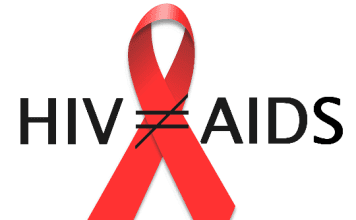Dr. Temitope Ilori, the Director General of the National Agency for the Control of AIDS, affirmed that the Federal Government is dedicated to eradicating the HIV/AIDS epidemic through enhanced collaboration with local and global development partners and reinforcing sub-national mechanisms.
During the conclusion of the 2024 Nigeria HIV prevention conference focused on ‘Accelerating HIV prevention to end AIDS through innovations and community engagement,’ she reiterated the government’s commitment.
Ilori highlighted the government’s determination to achieve the 95-95-95 targets set to eliminate AIDS by 2030 and underscored the importance of inclusivity in the fight against the disease.
Stating , “As an agency, we are ready and poised to provide leadership to drive an accelerated decline in new HIV infections.
“We are going to strengthen our multisectoral engagement starting from the State level through our State Agency for the Control of AIDS (SACA) to deliver their mandate and ensure sustainability at the grassroots.
“We are poised to foster community engagements, participation, and leadership to keep with the global AIDS strategy.”
Ilori announced that the conference will become an annual event and will be expanded to the state level, aiming to increase engagement with local communities and grassroots organizations, promoting wider reach and impact.
She added, “I think by then, we will have a bigger success story. We are also going to strengthen our data to make sure that we get it right.”
Elizabeth Talatu, the youth representative, emphasized the need for inclusive programs and policies to achieve the 95-95-95 targets and end AIDS by 2030.
She stressed that young people are enthusiastic about supporting comprehensive efforts to prevent HIV and urged for their active participation in the design and implementation of initiatives, ensuring their voices are heard and valued.
She stated, “We recognise that collaboration and partnerships across sectors are key in the fight against HIV/AIDS.
“To this end, we call for the active involvement and engagement of multiple sectors, including health, education, youth and sports development, budget and planning, women’s affairs, and others alike in the integration of HIV prevention interventions in programs targeting adolescents and young people.”
Talatu advocated for the active involvement of adolescents and young people living with HIV, including key populations, in government task forces and working groups responsible for coordinating HIV prevention efforts, resource allocation, and program implementation.
She emphasized that young people demand support for comprehensive sexuality education, strengthening of in-school HIV education programs, and integration of HIV prevention into existing health and development initiatives targeting youth, including reproductive health, economic empowerment, mental health, gender-based violence prevention, and education.
She stated, “We call for a multi-stakeholder approach to the development of mobile health applications and online platforms for HIV education, self-testing, adherence support, and virtual counseling services tailored to the needs and preferences of adolescent and young people living with HIV, including key populations.
“We stress the need for ensuring the health and rights of key populations living with HIV as a cornerstone of our HIV prevention agenda by prioritizing comprehensive care, empowerment, and advocacy for KP communities.”
The UNAIDS Country Director, Leo Zekeng, praised Nigeria and NACA for their efforts in combating HIV/AIDS, expressing optimism that the country is on track to meet global targets if it addresses crucial areas such as funding, data collection, multisectoral collaboration, and meaningful involvement of key populations and youth in program development and implementation.
He highlighted the importance of monitoring state-level activities and empowering them to fulfill their responsibilities, emphasizing the need for technological support to enhance their capacity and access development partner resources.
“I strongly believe that we can reduce new infections, I strongly believe that by working together, we can end HIV/AIDS in this beautiful country, Nigeria,” he added.
The Country Coordinator of PEPFAR emphasized that policymakers must take bold action by implementing the conference’s recommendations.
To end HIV/AIDS globally, she stressed the importance of involving youths, adolescents, and key populations living with the disease in the design and implementation of programs and policies aimed at eliminating the disease in Nigeria.
She however, encouraged youths and other participants to continue advocating for HIV/AIDS awareness and to promote a collective effort to combat the epidemic.
